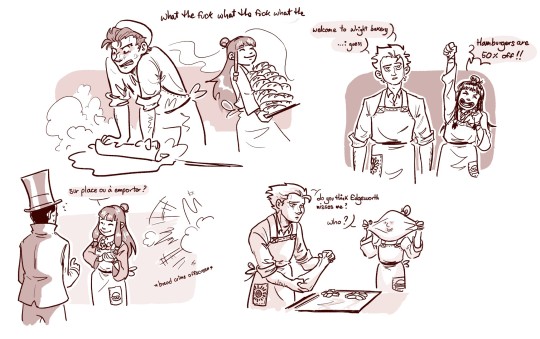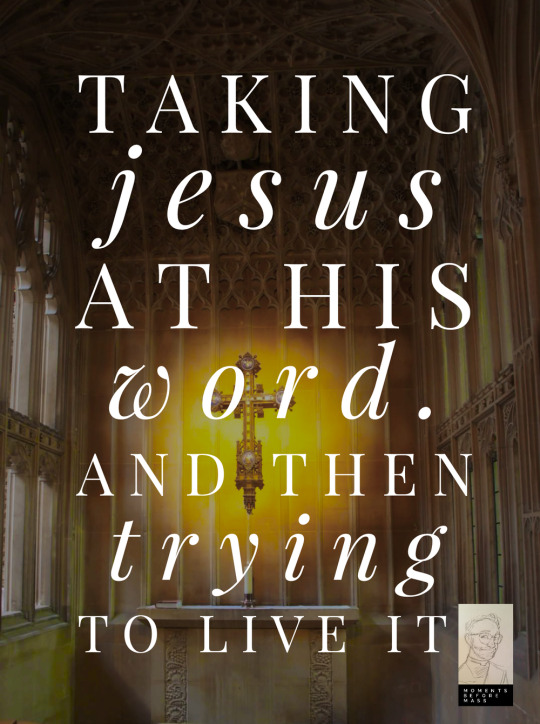#Jesus is the bread of life
Text
Christ the Redeemer, the Savior of the world
For God so loved the world, that he gave his only begotten Son, that whosoever believeth in him should not perish, but have everlasting life. John 3:16 KJV
Jesus said that He came that we may life, abundant life. “...I am come that they might have life, and that they might have it more abundantly.” John 10:10 KJV
The world is in bondage to sin and in rebellion against God. The corruption of sin blinds humanity to the reality of their condition. Those who do not know Jesus believe that by doing good works they can get into heaven and live for ever. But they do not realize that before any of their good works can be considered they need repentance and atonement. It is only when they encounter The Holy Spirit that they realize the true extent of their sin, and then when they put their trust in Jesus the atonement can be made.
Christ died for the sins of the world, the reason His blood can atone for the sins of the world is because He is the Son of God. Born of the virgin, predestined from the foundation of the world to die for the sins of Humanity. Our sin has no man made cure, but God had mercy on us and sent His Son to die on the cross to save us from sin and eternal damnation. Now mankind is aware of this problem. People know that deep down in their soul something is missing, so all kinds of religious acts have been invented to fill this void. But good works done in our flesh cannot fix this problem. They can make us feel good about ourselves, they cannot give us heaven and eternal life. Only God can forgive sins, He has laid down the requirements of salvation, for eternal existence in His presence. That requirement is perfection. Now we are all aware that we are not perfect, therefore there has be another way for us to attain heaven and eternal life. How can we attain this perfection? By claiming the substitutionary death of Jesus Christ on our behalf. Since the perfect Son of God has already atoned for the sins of the world all we need to achieve forgiveness of sins and eternal life is to put our trust in Jesus, to accept Him as our Lord and Savior.
#jesus loves#blood of jesus#jesuschrist#jesus is coming#evangelism#faith in jesus#jesus saves#jesus died for you#jesus is the answer#jesus is the bread of life#jesus loves you#jesusistheway#know jesus know peace#light for hindus#jesus saves hindus#jesus saves muslims#jesus died for u#jesus died for us
0 notes
Text

it's the year of our lord 2023 and I'm only now learning about Phoenix's and Maya's baker era

pov: you're living your best life making bread and a Lego figurine bursts into your bakery and now you have to prevent a girl from being burned alive as a witch
#phoenix beating the shit out of the bread offscreen while maya is trying to maintain a professional behaviour is HILARIOUS#avec le chat qui spam petris moi la pate phoenix mdrrrr#yeah i'm finally catching up on the layton vs phoenix crossover game#thank you antoine daniel i owe you my life#i'm kinda sad it's not canon in both universes can you imagine#hey edgeworth have i told you about the time i was a baker with maya FOR FIVE YEARS#jesus christ i'm only realising now phoenix spent more time playing poker and being a baker than being a LAWYER#at this point being a lawyer is more like a hobby#dounart#phoenix wright#ace attorney#ace attorney fanart#miles edgeworth#hershel layton#professor layton#maya fey#professor layton vs phoenix wright#plvspw#narumitsu#if you squint#art#fanart
985 notes
·
View notes
Text

“Five Good Things” by Our Daily Bread:
“Give thanks to the Lord, for he is good; his love endures forever.” —Psalm 107:1
“According to research, people who are intentionally grateful for what they have report better sleep, fewer symptoms of illness, and more happiness. Those are impressive benefits. Psychologists even suggest keeping a “gratitude journal” to improve our well-being, writing down five things we’re grateful for each week.
Scripture has long promoted the practice of gratitude. From meals and marriage (1 Timothy 4:3-5) to the beauties of creation (Psalm 104), the Bible has called us to see such things as gifts and to thank the Giver for them. Psalm 107 lists five things Israel could be especially grateful for: their rescue from the desert (vv. 4-9), their release from captivity (vv. 10-16), healing from disease (vv. 18-22), safety at sea (vv. 23-32), and their flourishing in a barren land (vv. 33-42). “Give thanks to the Lord,” the psalm repeats, for these are all signs of God’s “unfailing love” (vv. 8, 15, 21, 31).
Do you have a notepad handy? Why not write down five good things you’re grateful for now? It might be the meal you just enjoyed, your marriage or, like Israel, God’s rescue points in your life to date. Give thanks for the birds singing outside, the smells from your kitchen, the comfort of your chair, the murmurs of loved ones. Each is a gift and a sign of God’s unfailing love.”
By: Sheridan Voysey
#god loves you#bible verses#bible truths#bible scriptures#bible quotes#bible study#studying the bible#the word of god#christian devotionals#daily devotions#bible#christian blog#god#belief in god#faith in god#jesus#belief in jesus#faith in jesus#christian prayer#christian life#christian living#christian faith#christian inspiration#christian encouragement#christian motivation#christianity#christian quotes#our daily bread#keep the faith#make him known
63 notes
·
View notes
Text
2024 APRIL 18 Thursday
"Amen, amen, I say to you, whoever believes has eternal life. I am the bread of life. I am the living bread that came down from heaven; whoever eats this bread will live forever; and the bread that I will give is my flesh for the life of the world."
~ John 6:47-48,51
#bible#verse#scripture#gospel#apostle#saint#John#Amen#God#Lord#Jesus#Jesus Christ#Christ#whoever believes#eternal life#bread of life#living bread#live forever#life of the world
28 notes
·
View notes
Text
How can you tell?

When you read the Bible, you’re going to run into a lot of ideas about it.
Some of them are helpful. Some of them are just weird. Some of them are anything but helpful.
Some of the most harmful? The ones that boil down to making the Bible say what you want it to.
Sadly, no one has a monopoly on abusing the Bible this way. The people who do it come from every political and theological corner you can think of.
One of the worst? Picking and choosing what parts of the Bible to read literally (this happened, here’s what God said, etc.) and what parts to read as allegory or myth (a story is being told to make a point, a legend that reveals something about God, etc.).
Not that we shouldn’t do that. We should read the literal stuff as literal and the allegories as allegory. It’s just that some of the ideas about how to do that are so easily abused.
And easily used to abuse.
So how can you tell?
It’s easier than you think. You don’t need a degree in literature or theology.
Because you’re already doing it. Here’s what I mean:
“A sower went out to so some seed. And as he sowed, some of the seed fell on…”
Right. Before Jesus unpacks it, you know that this one is an allegory. It has that “once upon a time” feel to it.
But even if the farmer was an actual person, that’s not why Jesus is telling the story.
Jesus is not critiquing first century agricultural practices. Jesus is using the story to make a point. And we all know it.
Today’s Gospel is the bread of life discourse, where Jesus tells people that He is the bread of life. And then goes on to explain exactly what He means.
There are a lot of people who want this to be an allegory. For a lot of reasons.
It’s not.
How can I say that? How can you tell that Jesus is being literal about this one?
The reactions it gets. And way the way Jesus responds to those reactions.
The first time Jesus announces that He is the bread of life, no one who heard it understood it as an allegory.
How do I know this? Their reaction – “How can this man give us his Flesh to eat?”
Making it clear that they have it right, that this is no metaphor, Jesus doesn’t explain the symbolism (like He does with the parable of the sower).
Instead (in tomorrow’s Gospel), Jesus doubles down on what He said, on what they’re hanging up on. “Unless you eat the Flesh of the Son of Man and drink his Blood, you do not have life within you.”
Making it clear that they understood Jesus to be speaking literally?
The way that people respond to Jesus doubling down - many of them quit following Jesus and leave.
That’s not how people respond to an allegory. Nobody leaves after Jesus explains the parable of the sower.
If you ever wondered why Catholics are so hung up on the Eucharist? Why we believe what we believe?
This is what’s behind it.
We’re just taking Jesus at His word. And then trying to live it.
That’s the formula for everything that’s right about our Faith. And something we cannot do enough.
Today’s Readings
#Literal#Allegory#Bread of Life#Taking Jesus at His Word#Living the Faith#Eucharist#God#Jesus#Catholic#Christian#Church#Catholicism#Moments Before Mass
27 notes
·
View notes
Text
Some people love violence and division. Don’t lose heart. They will not win. God is looking for courageous believers to share His light and peace with our desperate world. What seems like a crisis might be your opportunity to show someone God’s love.
Our Daily Bread
#2024#quote#motivation#motivational quotes#words of wisdom#words of God#Jesus#Christ#Christian#God#Lord#love#care#share#hope#heart#belief#believe#faith#trust#truth#life#live#human#humanity#wise#wisdom#our daily bread
12 notes
·
View notes
Text

I am the living bread that came down from heaven, says the Lord;
whoever eats this bread will live forever.
#jesus#catholic#my remnant army#jesus christ#virgin mary#faithoverfear#saints#jesusisgod#endtimes#artwork#holy eucharist#Jesus is coming#bibleverse#bibleversoftheday#the bread of life#eternal life
52 notes
·
View notes
Text

#beavis and butthead#christmas#blessed are the merciful#matthew 5:7#jesus#santa butthead#daily bread#nightly bread#god is love#bible#tree of life
8 notes
·
View notes
Text
god okay we got a sling, a new brace, and a few supplements to help my tendon/muscle heal so. here's to hoping
#dying bc life is expensive and i can't make money lol#people keep telling me it might be months before I can draw again and i want to break something like#no you don't understand I've never gone MONTHS without drawing before i can't do that#beyond that it's my income and I'm our bread winner#ive never just. NOT DRAWN like that before. Jesus#miserable beast
5 notes
·
View notes
Text

Art by, Abraham Hunter. (Remember Me)
#art#oil#faith#grapes#bread#light#crucifixion#hourglxss#time#remember#love#life#christianity#Christ#Jesus art#spiritual#religious
51 notes
·
View notes
Text

Oh yeah I can be so insufferably Catholic about this
#dunno why we're shouting out bread tumblr but guess what it's time to be introduced to the Bread of Life babes#catholic#lilac talks about jesus
3 notes
·
View notes
Photo

(yellowsunflower-me)
36 notes
·
View notes
Text
Everyone who does evil hates the light, and will not come into the light for fear that their deeds will be exposed. John 3:20 NIV
For there is nothing hidden that will not be disclosed, and nothing concealed that will not be known or brought out into the open. Luke 8:17 NIV
For whatever is hidden is meant to be disclosed, and whatever is concealed is meant to be brought out into the open. Mark 4:22 NIV
#jesus christ#bible scripture#bible verse#bibledaily#biblia#hebrew bible#jesus is lord#word of god#word of life#word of the day#daily bread#verse of the day
8 notes
·
View notes
Text

#jesus#god#love#truth#motivation#god’s truth#insperation#faith#strength#thank god#holy spirit#growth#jesusistheway#jesusitrustinyou#jesuschrist#jesusislord#belief in jesus#holyghost#bread of life#knowledge#kind#walk with god#will of god#pray#stay prayed up#nofear#the gospel truth#lord jesus christ#jesuscristo#seekgod
11 notes
·
View notes
Text
2024 APRIL 17 Wednesday
"I am the bread of life; whoever comes to me will never hunger, and whoever believes in me will never thirst."
~ John 6:35
#bible#verse#scripture#gospel#apostle#saint#John#God#Lord#Jesus#Jesus Christ#Christ#bread of life#come to the Lord#never hunger#never thirst
12 notes
·
View notes
Text
Bread of life?
(by request, my homily from Corpus Christi)
Why are we so hung up on the Eucharist?
Why do we believe that the world’s most basic cracker (it’s just water and flour) becomes the Body and Blood, Soul and Divinity of Our Lord and Savior Jesus Christ during the Mass?
It starts with Sunday’s Gospel. It’s the heart of the Bread of Life Discourse. Where Jesus calls Himself the bread of life. Then explains what He means. By being completely literal.
A lot people say that this is all symbolic, even some Catholics. How do we know that Jesus is being literal about being the bread of life?
There are a lot of reasons. I’ll only give you three of them.
First, we know that Jesus is being literal because Jesus tells us that He is being literal.
Throughout John’s Gospel, 25 times to be exact, Jesus says, “Amen, amen, I say to you,” to signal that He is speaking directly and being literal. When He wants to be taken at face value.
You and I might say something like, “literally,” or “no, seriously.”
With “amen, amen,” Jesus is doubling down on the meaning. Just like when we say, “for real, for real.”
Which is why, in the Gospel we just heard, when Jesus explains what He means by calling Himself “the living bread that came down from heaven,” He starts His explanation with, “Amen, amen, I say to you.” To make it clear that He’s being literal.
Second, we know that Jesus is being literal because of the style that Jesus uses.
When Jesus wants us to understand something as a metaphor or a symbol, He uses a very specific style to tell us that there’s more going on than just the story He’s telling.
Think of the parable of the sower. It starts with, “A sower went out to sow some seed. And as he sowed, some seed fell by the wayside; and the birds came and devoured them.”
Even before you get to the part where Jesus unpacks the meaning, the style Jesus uses tells us that this isn’t really about first century farming practices. The style tells us that the important part is the meaning behind the story.
Contrast that with today’s Gospel. It starts with, “I am the living bread that came down from heaven; whoever eats this bread will live forever; and the bread that I give is my flesh for the life of the world.”
You don’t need a degree in literature to hear the difference between “a sower went out to sow some seed” and “I am the bread of life.” One of them sounds like a fable – like, “Once upon a time.” The other is a simple, direct statement, mean to be taken at face value – like, “I am wearing shoes.”
Third, we know Jesus is being literal about being the bread of life by the way people reacted.
After the first part of today’s Gospel, where Jesus says, “I am the bread of life?” That made no sense to His Jewish audience. We see that in the Gospel, when they start asking, “How can this man give us His flesh to eat?”
Look how Jesus responds. He doesn’t say, “calm down, I don’t mean it literally, it’s just a figure of speech.”
No, Jesus doubles down on the literal meaning. He says, “Amen, amen, I say to you, unless you eat the flesh of the Son of Man and drink his blood, you do not have life within you.”
If you read the rest of the chapter that comes after today’s Gospel, you find out that they knew Jesus was speaking literally when He doubled down on the whole “bread of life” thing. Why do I say that?
You know they took Him seriously, because they left. Jesus lost a lot of followers when He said, “no, I mean it.” A few verses after today’s Gospel, John tells us, “From that time many of his disciples went back, and walked no more with him.”
And it wasn’t just the Jewish audience who heard Jesus say it that took it literally. The Romans understood this literally as well.
To the point that – in the centuries before Christianity was legalized in the Roman Empire – one of the most common accusations made in Roman courts against Christians was that they practiced cannibalism.
Indeed, it wasn’t until the Protestant Reformation in the 1500’s that anyone seriously questioned whether Jesus was speaking literally here. That was something the early Protestants pushed – well, you know why.
Truth be told, you have to read this Gospel with your mind already made up (and ignore a lot of clues that are right there in the text) to think that Jesus is not speaking literally.
Of course, the great danger in reading today’s Gospel with an open mind is that you might discover the truth.
But how can the world’s most basic cracker be the Body of Christ? You’ve seen it before Mass and after the consecration – there’s no visible difference. It still looks like bread.
If I might translate that question into the thought behind it. When you and I say that, what we’re really saying is this –
I don’t understand it, therefore it can’t be true.
When you boil that statement down to its essence, it easy to see that it doesn’t work. Because it’s nonsense. Here’s what I mean,
Show of hands. How many of us can explain how an internal combustion engine works?
I’m afraid that “put in go-go juice, car go vroom, vroom” isn’t an explanation. So, I’ll have to put my hand down.
Okay, one more show of hands. How many of us got here in a car or truck with an internal combustion engine?
According to the standard of “I don’t understand it, therefore it can’t be true,” that could not have happened. And yet, here we are.
Which tells us what? That however much you and I think we know, there are things that are completely true that you and I do not understand.
Our collective lack of understanding? It has no impact on their truth.
Which is why the fact that you and I don’t fully understand how the Eucharist could be the Body and Blood, Soul and Divinity of our Lord and Savior Jesus Christ has no bearing on the fact that it is exactly that.
As with today’s Gospel, the great danger in approaching the Eucharist with an open mind is that you might discover the truth.
What is the truth? The truth is that the Eucharist is just what Jesus says it is – His Body and Blood, His Soul and Divinity, given for the salvation of the world.
Our Lord and Savior is really, intimately, physically, and personally present in the Eucharist.
Meaning that, in the Eucharist, you and I have the opportunity for the most intimate moment with God that is possible in this life. It’s a deepening of our relationship and connection with God. And a foretaste today, in this life, of the peace and joy and love of God that is waiting for you in eternity.
All that you have to do is approach the One who is waiting for you in the Sacrament with an open heart.
Of course, the great danger in approaching the Eucharist with an open heart is that you might discover the truth.
Sunday’s Readings
#Bread of Life#Corpus Christi#God#Jesus#Catholic#Christian#Church#Eucharist#Body and Blood#Real Presence#Literally#For real for real#Moments Before Mass
12 notes
·
View notes